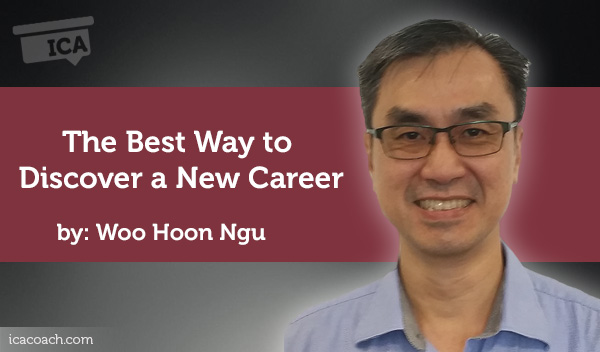
Coaching Case Study By Woo Hoon Ngu
(Career Coach, SINGAPORE)
PC, a 59-year old, is currently a HR director with a financial institution. PC has started a Counseling career after decided to retire from the corporate HR career a few years ago. He has gone through a Master degree course in Counseling, and worked as a counselor with a few Voluntary Welfare Organizations (VWO). He has re-joined the corporate HR career about a year ago, using his expertise and experience to help shape the corporate culture of a struggling financial institution.
Though PC has enjoyed his current role as HR director, he felt the need to explore other career options mainly due to him advancing in years, hence the need to find a second career outside of corporate which can continue to give him an income after he stops working.
Since he has started this coaching programme, he wanted to find out if this is the right career for himself.
This was an issue to PC as coaching is a fairly new profession in Singapore, and being new to this new profession, he is unsure if he is able to i) be a good coach, and ii) generate enough income from practicing coaching.
At the time of meeting, PC has been pondering on this for about 1 to 2 months since the coaching programme has started.
PC has been very successful in his corporate HR career, and also counselling. Being very new to coaching, he was not sure about his suitability to the work required, and whether this can generate enough income for his post-corporate lifestyle.
As this is a fairly new idea he is pondering on, PC has not been sharing this with anyone until the peer coaching opportunity arises.
Lots of active listening, powerful questioning, StrengthFinder, reframing perspectives, creating awareness, and creating actions.
The Coaching Session
After hearing PC’s fear of failure that he may not be a good coach, I put to PC what strengths in his StrengthFinder Top 5 that may be able to help him to succeed in coaching. He was able to quickly relate that his strength in connectedness, empathy, and developer will be able to help to adapt to coaching and play to his strengths. This is the same set of talents he has put to use successfully for his corporate HR career, and subsequently in counselling. He was able to identify how these have helped him in the past and how these should continue to help him as he moves into coaching.
To help him to overcome his fear of unknown in generating enough income for himself, I asked him if he has any idea how his current resources may be able to help. He was able to quickly relate to the new resources and social network in the coaching programme we both are in. PC was able to identify many other more senior coaches within the network that have demonstrated success in coaching, and the opportunities we all have in connecting with them to learn the trade. PC was able to then work out a networking plan how he can connect further with these experienced coaches and learn how he may become another successful practicing coach.
During the conversation on widening the network, PC also confessed his own introversion's that may hinder him to network. We went through his priorities and aspirations in life by asking more questions, and finally agree that he will have to commit to doing this in exchange for a better future he is envisaging for himself.
PC also brought up his busy schedule as one of the obstacles that may hinder to taking necessary actions to help completing the coaching programme, and to networking. I brought to his attention again to the aspirations we have established earlier so as to get his commitment to doing it.
We finally worked out an action plan with specific timelines to complete the coaching programme, and steps to networking more to find out more about the coaching business.
N.B: this is a brief of the coaching conversation just to highlight the main shift.
I feel that the process was successful in that PC was able to feel confident about him able to do well as a coach, and also he has a solid action plan to start exploring with those other successful coaches in the network to learn about starting a profitable coaching business. The last I checked he has completed part of the course practicum, and on his way to completing the rest of the coaching programme.
I think one of the main reasons for the effectiveness of this coaching is that I was able to withhold making any suggestion to PC. All the solutions and action plans were suggested by PC himself after I probed him with more questions to explore his priorities, aspirations, and strengths.
Session Reflection
If I were to do this again, I would like to ask more questions especially on the part about stepping out of his introverted comfort zone, and the lack of time to commit to taking actions. I have found letting the client work out his own solutions and schedule is the best approach as he then “owns” the plan.
Learnings
The 3 top lessons from this experience:
- Be clear from the start what is the coaching session about– we spent the first few minutes to clarify and agree on it.
- The client has the answer –resist any tendency to suggest any solution or answer. The client will be able to “own” their solutions and be responsible for any plan they come up with.
- Be sure to commit to an action plan by the end of the session, else nothing will happen after the session.